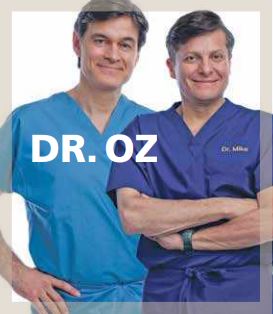
It’s frustrating how much is unknown about dementia. Even in the medical community, the bestinformed researchers have come up short in their search for medications to block or slow disease progress. So we thought we’d give you a quick rundown: What dementia is, what types there are, what is known about causes, prevention and management.
What is dementia? Dementia is a neurodegenerative condition that happens when once-healthy nerve cells called neurons stop being able to transmit messages and lose their connection to other brain cells. Those cells may even die. The result is a loss of cognitive function — that is, remembering, reasoning and thinking. Language, problem solving, visual perception, memory and focus can be diminished or lost. What dementia is not is a normal part of aging.
What are the various types of dementia? The main types are Alzheimer’s disease, Lewy body dementia, frontotemporal disorders, and a large category of conditions called VCID (vascular contributions to cognitive impairment and dementia).
A person can also have mixed dementia, combining two or more conditions.
Alzheimer’s affects an estimated 5.5 million Americans 65 and older. It’s characterized by abnormal clumps of amyloid plaques and tangles of tau proteins. While they’re the main features of the disorder, some people have plaques but no cognition and memory problems, and medications that address the plaques and tau have not proved beneficial. The latest research, published in Proceedings of the National Academy of Sciences, looked at the involvement of brain immune cells (microglia) and endothelial cells in the brain’s blood vessels. Turns out they too are dysregulated in AD. Creating medication to protect or restore their function may lead to more effective treatments.
Lewy body dementia affects around 1.4 million people in the U.S. — usually from age 50, or even younger. It’s associated with abnormal deposits in the brain of another type of protein, alphasynuclein. That causes problems with thinking, movement, mood and behaviour. There are two forms of LBD —dementia with Lewy bodies and Parkinson’s disease dementia. Although we don’t know the cause, we do know LBD disrupts the neurotransmitters dopamine and acetylcholine and that can lead to the disorder’s characteristic symptoms. Treatments to manage symptoms, including sleep problems, hallucinations and movement problems, are available. Frontotemporal disorders are part of a category of brain diseases called frontotemporal lobar degeneration.
Frontotemporal disorders are diagnosed based on a person’s symptoms, such as unusual behaviour, emotional problems, trouble communicating, difficulty walking, and the results of brain scans and genetic tests. With the exception of known genetic causes, FTLD can be diagnosed definitively only by brain autopsy after death. There are no treatments to slow or stop the progression of the disorders.
VCID causes dementia after a stroke or multiple and asymptomatic mini-strokes (multi-infarct dementia) or other vascular brain injury. Some forms are associated with atrial fibrillation (heart rhythm problems), high blood pressure, diabetes, and elevated LDL cholesterol. Symptoms vary widely but can include language problems, behaviour changes, slowed thinking and organizational difficulties. Medications that address underlying cardiovascular conditions, such as atrial fibrillation or atherosclerosis, may reduce the risk and progression.
Prevention is the best way to address these debilitating conditions. Recent studies indicate that regardless of your genes, smart lifestyle choices can cut your risk by at least 60 per cent — and maybe by as much as 90 per cent. Keeping your weight, insulin/glucose and cholesterol levels in a healthy range is key. That means following a plant-based diet, free of ultra-processed foods and added sugars, getting plenty of regular physical activity and sleep for seven to eight hours nightly and cultivating a network of caring based on friends and family and helping others. You also need to work with your doctor to manage — with medication, if needed — any chronic conditions you have.
You do have a lot of power over dementia, so flex those muscles today so you can enjoy an active, engaged life from start to finish.
Mehmet Oz, M.D. is host of “The Dr. Oz Show,” and Mike Roizen, M.D. is Chief Wellness Officer and Chair of Wellness Institute at Cleveland Clinic. To live your healthiest, tune into “The Dr. Oz Show” or visit www.sharecare.com. (c)2020 Michael Roizen, M.D. and Mehmet Oz, M.D. Distributed by King Features Syndicate, Inc.
-MICHAEL ROIZEN, M.D., AND MEHMET OZ, M.D

Leave a Reply